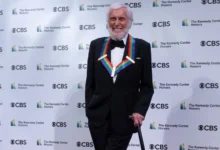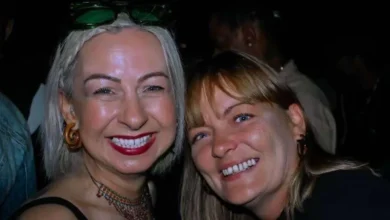BBC News Presenter Diagnosed with Incurable Cancer Following Bike Crash Uncovering Tumour
BBC Scotland's Political Editor, Glenn Campbell, shares the discovery of a brain tumour following his involvement in a traumatic bike accident.
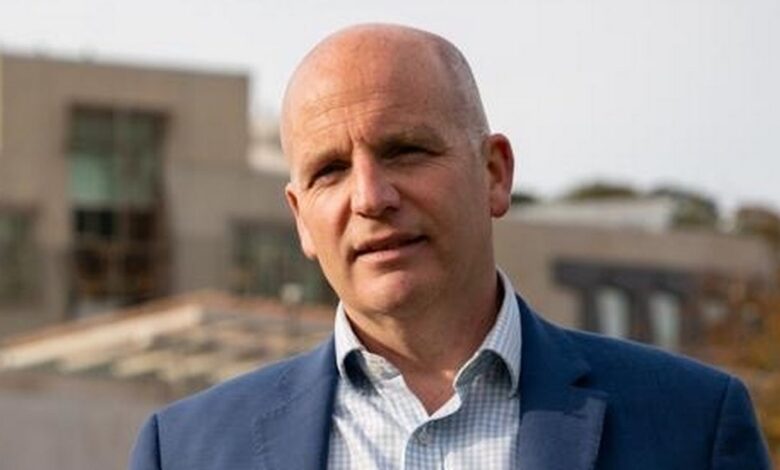

BBC News presenter Glenn Campbell has shared the harrowing moment doctors discovered he had a brain tumour, a prognosis that is expected to be fatal in the long run. The revelation came after a frightening bike accident in which he collided face-first with the road.
At 48 years old, Glenn, who serves as BBC Scotland’s Political Editor, publicly disclosed his diagnosis in an open interview. Despite acknowledging that he will miss witnessing his children’s growth, he expressed a lack of fear towards death.
The grim diagnosis unfolded when Glenn fell from his bike on an uneven road. During the incident, he worried about the possibility of being run over while lying immobile. Fortunately, a passing stranger intervened, stopping traffic and preventing further harm. Despite suffering ten broken ribs, Glenn received treatment for his injuries and was eventually allowed to return home.
However, the ordeal continued when, weeks later, Glenn discovered he was unable to walk or speak coherently. Initially feared to be a stroke by his wife, it was revealed that Glenn was actually experiencing seizures.
In describing his illness, Glenn explained, “What I’ve been diagnosed with is an incurable brain cancer, and, while that’s really not good, I instinctively knew very early on that I wanted to try to make something positive out of such a negative situation. I’ve realised – and I’m quite surprised by this – that I’m not actually afraid of dying. What I really fear is missing out.”
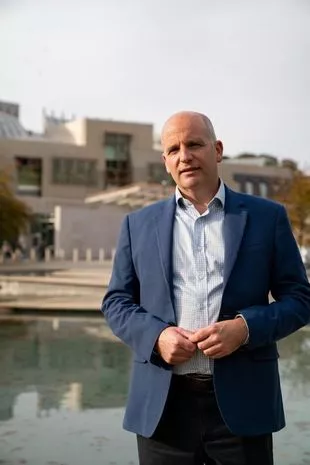



“I find myself fearful of missing out on the experience of growing old alongside my wife, Claire. The thought of not witnessing my children mature into adults, being absent from their graduations, potential weddings, and the births of their children haunts me. Despite these fears, I am driven to defy the statistics to the best of my ability.”
Acknowledging that his future is limited, Glenn expresses a desire to assist others facing a cancer diagnosis, aiming to provide them with the best chance for a positive outcome. He emphasises, “I want to contribute to the efforts to enhance these statistics, not just for myself, but for the cancer patients who will follow. The challenge with brain cancer lies in its lower survival rates, resulting in a lack of survivors advocating for increased awareness and attention for this challenging-to-treat form of cancer.”
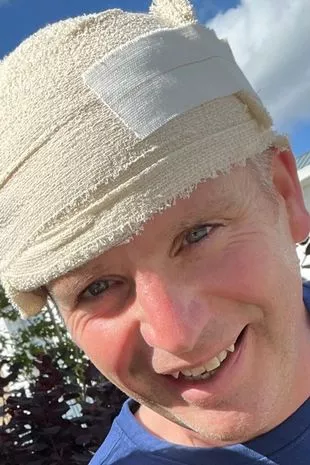

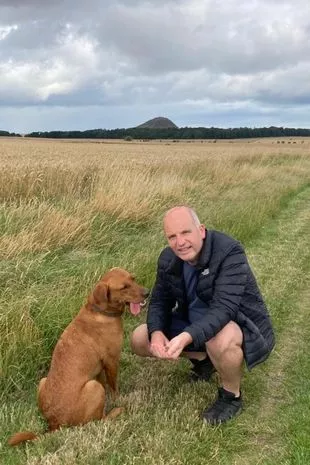

Glenn, having recently undergone surgery to remove a brain tumour discovered after a bike accident, is now embracing each moment with a philosophical outlook on the limited time he might have left. Despite knowing that the tumour poses a significant threat, he chooses to focus on living with it rather than worrying about its potential consequences.
In August, Glenn received a diagnosis of oligodendroglioma, a rare form of brain cancer constituting only three percent of all brain tumours. The prognosis seemed grim before his five-hour operation at the Royal Infirmary of Edinburgh. Initially fearing he might not reach his 50th birthday, Glenn celebrated his survival with a sense of euphoria upon waking up after the risky surgery, marking the occasion with cheese and biscuits in the high-dependency ward. Remarkably, he recovered swiftly, going from surgery on a Thursday to walking his dog at home by Saturday.
Despite the challenges, Glenn finds a silver lining in the potential for treatment. With radiotherapy and chemotherapy, there is optimism that the tumour can be kept in check for an extended period—possibly many years. Recognizing the uncertainties involved, he acknowledges the role of luck and envisions his brain cancer as a catalyst for a new lease of life, feeling that the transformation has already begun in some aspects.




